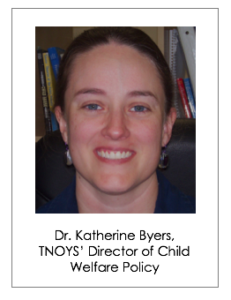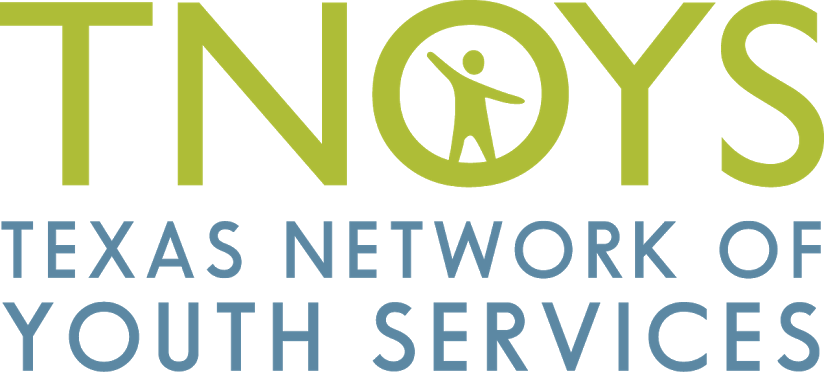
We know that there is a lot of room for improvement when it comes to preparing foster youth in Texas for the transition to adulthood – youth who have aged out of the system disproportionately suffer from homelessness, unemployment, criminal involvement, and many other challenges. SB 1758, passed during the 2017 Texas Legislative Session, is one of the most promising efforts to date to address the issue, providing a path forward for making large-scale, holistic changes to better support transition-age youth. TNOYS’ Director of Child Welfare Policy, Dr. Katherine Byers, was on the front lines of helping to get SB 1758 passed and is now taking a leadership role in ensuring the policy is implemented as effectively as possible.
“We’re all familiar with the negative outcomes for youth that age out of foster care,” said Katherine. “We’ve had small pieces of policy change here and there over the years but SB 1758 has presented the best opportunity to work with the Texas Department of Family and Protective Services (DFPS) on comprehensive improvement of the entire process for preparing these young people for adulthood.”
Since the beginning of this year, Katherine has been co-facilitating a statewide workgroup alongside DFPS staff, with the goal of drafting a report with recommendations to the Texas Legislature on how to best move forward on SB 1758. The workgroup includes a variety of stakeholders from across Texas, including DFPS staff, contractors for the PAL (Preparation for Adult Living) program that the state currently uses to teach foster youth about adulthood, other advocacy organizations focused on the issue, academics, and others. Before the workgroup began meeting, Katherine had already begun research by speaking to stakeholders in 13 other states to get an understanding of their best practices and lessons learned in preparing foster youth for adulthood.
The report, due to the Texas Legislature in December, is meant to take these various perspectives and provide concrete recommendations on how to create a better system for preparing Texas foster youth to lead healthy adult lives. Those recommendations cover topics from the curriculum of the PAL program to the type of housing models available to foster youth as they get closer to adulthood.
“It’s exciting to have this opportunity to really take a close look at the current system for preparing foster youth to enter the adult world and how it can be improved,” Katherine said. “We’re really hopeful that the many months the workgroup has spent gathering information and input will result in changes that can truly make a difference in the lives of these vulnerable youth who deserve the best possible future.”
As the report nears completion, the workgroup is seeking additional input to ensure they have taken into account all relevant perspectives. There are currently two surveys open – one for foster parents and one for providers who serve youth aging out of foster care. These are two very important populations whose experiences can help ensure SB 1758 is carried out as effectively as possible. If you are either a foster parent or provider who works with transition-age youth, we encourage you to complete these online surveys:
For more detailed information about SB 1758 and supporting transition-age youth, click here to access a free recording of a webinar that Katherine led on Aug. 10.
